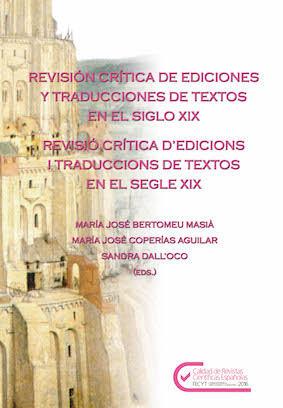Louis Prosper Gachard and the edition of Margarita de Parma's correspondence
DOI:
https://doi.org/10.7203/qdfed.22.11180Keywords:
text editing, Gachard, Margarite of Parma, 16th century, correspondence Abstract
Abstract
The work that was carried out in the 19th century by archivists like Louis Prosper Gachard, focused on the correspondence of the governors of the Netherlands during the 16th century, as well as on other topics, has been and is a reference for the edition of epistolaries. The documents were scattered in different European archives and editing them was necessary. This paper aims to analyze the conditions under which these works took place, the spirit that encouraged them, and the results that were obtained. It is necessary to review this enormous work in order to continue it. In the first place, not to repeat what was already done and, secondly, to continue a work that still deserves the admiration of historians, philologists and archivists.
 Downloads
Downloads
Downloads
Published
How to Cite
-
Abstract659
-
PDF (Español)360
-
PDF (Català)252
-
PDF192
Issue
Section
License
 Este obra está bajo una licencia de Creative Commons Reconocimiento-NoComercial-SinObraDerivada 4.0 Internacional.
Este obra está bajo una licencia de Creative Commons Reconocimiento-NoComercial-SinObraDerivada 4.0 Internacional.
Authors who publish with this journal agree to the following terms:
- Authors retain copyright and grant the journal right of first publication with the work simultaneously licensed under a Creative Commons Attribution License that allows others to share the work with an acknowledgement of the work's authorship and initial publication in this journal.
- Authors are able to enter into separate, additional contractual arrangements for the non-exclusive distribution of the journal's published version of the work (e.g., post it to an institutional repository or publish it in a book), with an acknowledgement of its initial publication in this journal.
- Authors are permitted and encouraged to post their work online (e.g., in institutional repositories or on their website) prior to and during the submission process, as it can lead to productive exchanges, as well as earlier and greater citation of published work (See The Effect of Open Access).



